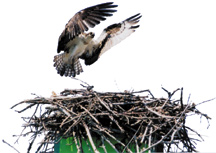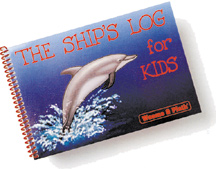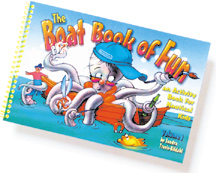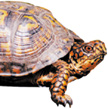Not Just for Dads
by April Doss
If your Dad takes you boating on Father’s Day (or any other day), here are three important things to do:
- Always wear your PFD, or life jacket, buckled snugly around you.
- Remain seated while the boat is moving, unless your Dad tells you it’s okay to get up.
- Keep a sharp lookout for other boats. Let your Dad know if you see another boat heading your way, and wave to them when they pass by.
Here are three fun things to do:
- Look for osprey, the fish hawks that make their nests on top of the channel markers in rivers and creeks around the Bay.
- Keep an eye out for nautical marks of all kinds. Ask Dad to help you identify what each kind of marker or sign is for.
- The red and green channel markers point to where the water is deepest.
- The white markers set speed limits and warn boaters to make no wakes.
- You’ll see lots more in the water, too, from clam line markers to crab pot floats and signs for oyster sanctuary reefs.
- Practice reading your Dad’s nautical chart. Can you tell from looking at the landmarks and markers around you where you are on the chart? Ask Dad to help.
 About Osprey: Did you know …
About Osprey: Did you know …
- Osprey, a kind of raptor, have brown feathers on their backs and white feathers on their bellies. Their bodies are about 21-24 inches long, and their wing span is 41/2 to 5 feet. The females are usually larger than the males.
- Osprey migrate. They spend the winters in the Caribbean and Central and South America, and the summers in North America, including the Chesapeake Bay.
- Osprey usually mate for life, and they return to the same nest year after year.
- Osprey usually lay their eggs in April, with three or four eggs in a clutch. Hatchlings are helpless when they’re born, but they will be doing aerobatics by the time they’re eight weeks old.
- Osprey love to make their nests on top of channel markers in rivers, creeks and the Bay. These nesting sites keep osprey safe from animals who might eat them and their chicks, as well as keeping them close to what they most love to eat: fish. It’s like living on top of the grocery store.
- The Chesapeake has the greatest number of osprey anywhere in the world: nearly 2,000 pairs.
 Books on Board
Books on Board
During a ship’s voyage, the captain or watch officer keeps a log book. Once every day a record is made of the ship’s course, speed and position, weather conditions and any ships, land or wildlife sighted.
Pleasure boaters keep a ship’s log to remember details of each pleasure destination, the length of trip, names of guests and interesting sights, landmarks or navigational dangers to remember. The ship’s log can also tell the story of each adventure enjoyed by the ship’s passengers.
Sandra Travis-Bildahl has written The Ship’s Log for Kids to give you a place to write down memories of a boating trip or of a season’s worth of trips. In addition to pages for your writing, it includes fun facts to know, lessons in boating language and how to signal for help in Morse Code.
In Morse Code, the signal for help is SOS: Three short sounds, three long sounds, three short sounds. You can practice on the whistle that comes attached to the book.
The Ship’s Log for Kid also asks important safety questions that each boater, young or old, should be able to answer:
- “Do you have a bucket on board for bailing?”
- “Is there a first aid kit?”
- “Is there a fire extinguisher, and do the adults know how to use it?”
 Don’t know what to say? Your log helps get you started:
Don’t know what to say? Your log helps get you started:
- “Did you ever wish upon a star?”
- “Write about a faraway place you’d like to visit.”
- “What are you thinking about?”
Travis-Bildahl has also written The Boat Book of Fun: An Activity Book for Nautical Kids. She calls it a “place to find lots of great things to do on your boating adventures … there’s an activity that fits wherever you may be, whether you’re on land or at sea.”
Weems and Plath of Annapolis publish the books: 410/263-6700. The Ship’s Log: $19.95 with the whistle, $14.95 without; The Boat Book of Fun: $9.95.
— Hanne Denney
Kids’ Stuff
Friday June 14
Flags and Fathers
Learn about the the flag, make a gift for Dad. Hear Father’s Day stories in between. 10 am @ Barnes & Noble, Annapolis Harbor Center:
410/573-1115
 Sunday, June 16
Sunday, June 16
Turtle Story Time
Find out about our secretive shelled friends. Turtle story, turtle hike, turtle crafts and turtle introductions. Ages 3-5 w/adult. 2pm @ Kinder Farm Park $2; rsvp:
410/222-6115.
 Mondays, June 17 - July 22
Mondays, June 17 - July 22
Fry Fishing
Fishing for beginners, from casting to fish species to safe fish handling. Ages 5-12 w/parents encouraged. 6:30-7:30 pm @ Southern Community Center, Lusby: 410/586-1101.
Mondays, June 17 - July 15
Advanced Fishing Fun
Learn habitats and baits, saltwater to freshwater. End with a fishing day on a lake. Parents encouraged w/children. 7:45-8:45pm @ Southern Community Center: 410/586-1101.
Tuesday June 18
Silly Poems
Kids of all ages hear I Invited a Dragon to Dinner. 10am @ Barnes & Noble, Annapolis Harbor Center. 410/573-1115.